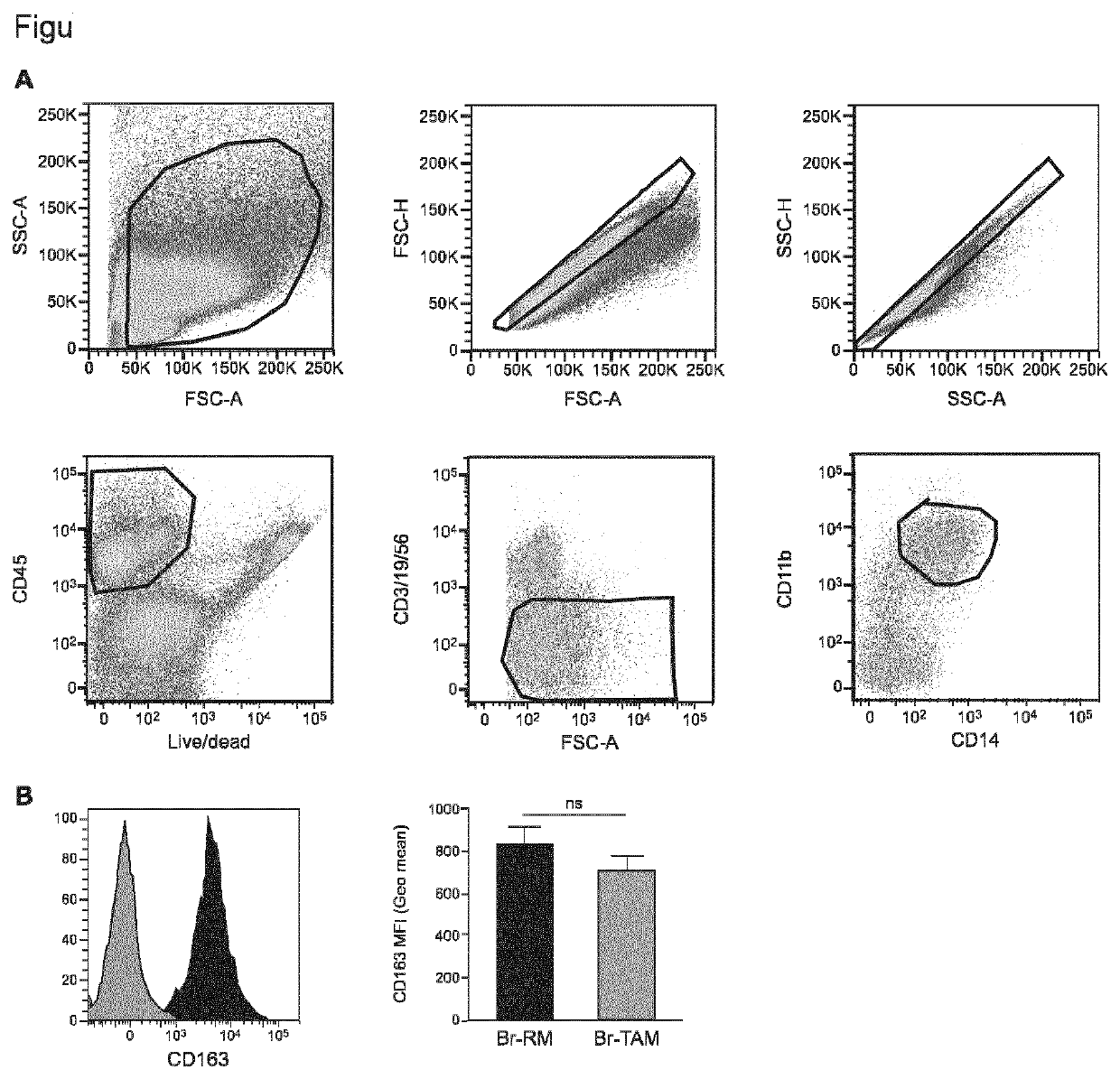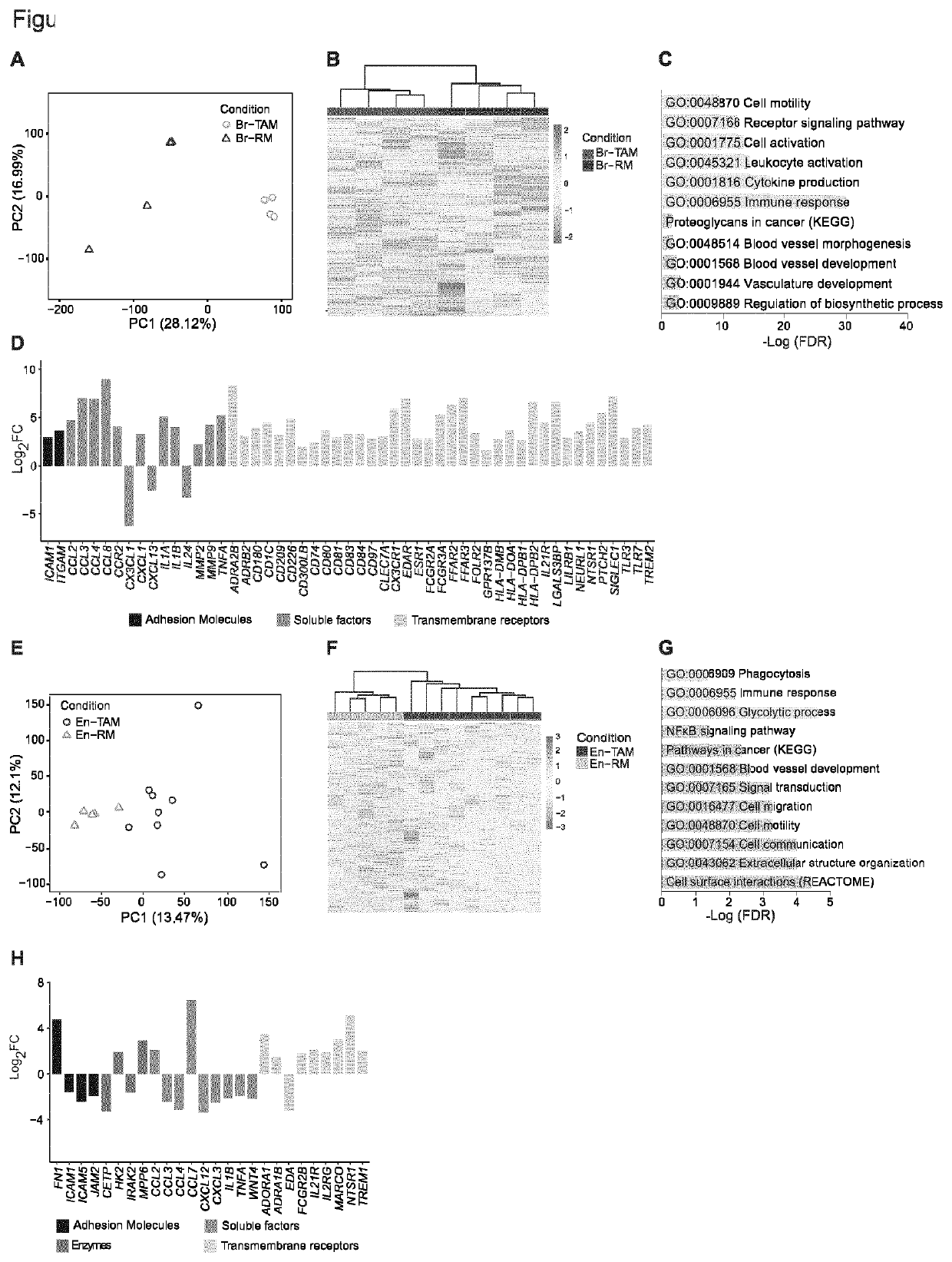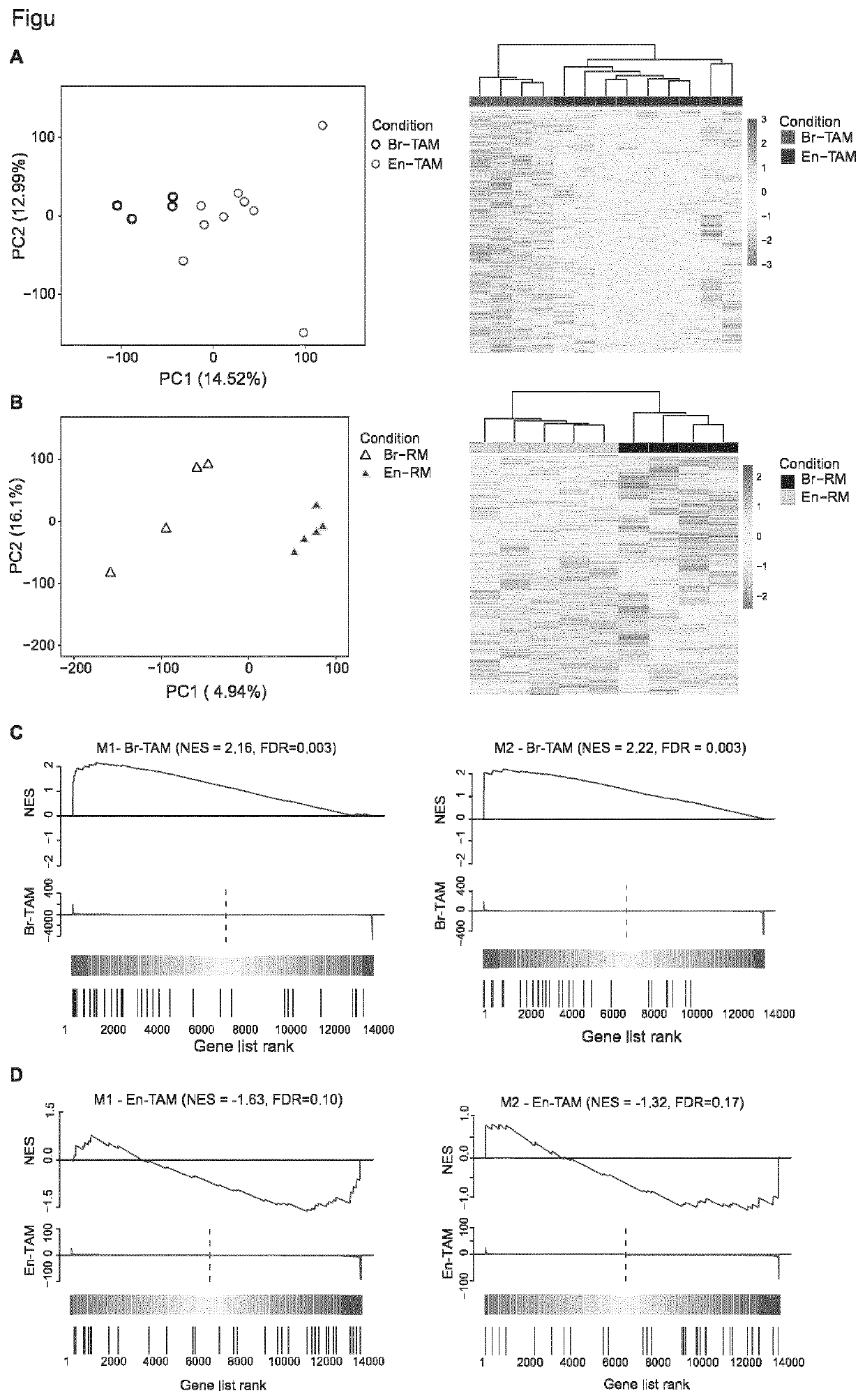Macrophage markers in cancer
a cancer and macrophage technology, applied in the field of macrophage markers in cancer, can solve the problems of breast cancer mortality reduction, overdiagnosis and potentially unnecessary treatment, and other early detection screening methods (e.g., mri, ultrasonography, clinical and self-breast examination) are inadequate at present to reduce breast cancer mortality, and achieve the effects of reducing breast cancer mortality, and reducing tumor cell proliferation
- Summary
- Abstract
- Description
- Claims
- Application Information
AI Technical Summary
Benefits of technology
Problems solved by technology
Method used
Image
Examples
Embodiment Construction
[0016]The methods of the present invention provide simple tests that may be used in the methods of diagnosing and / or prognosing cancer, predicting efficacy of treatment for cancer, assessing outcome of treatment for cancer, assessing likelihood of metastasis, assessing recurrence of cancer and / or treating cancer. The kits and devices of the invention are useful for conducting the methods of the invention. Methods are also provided for identifying new therapeutic molecules for treating cancer. Cancers to which the invention may be applied include, but are not limited to, breast, lung, brain and colon cancer, particularly breast cancer.
[0017]The invention is based on the inventors' significant and surprising finding that the expression of certain biomarkers, namely SIGLEC1, CCL8, CD163, and CD68, in tissue, specifically macrophages, is associated with cancer and in particular cancer that is more likely to spread to other parts of the body (metastasize) and more likely to recur followi...
PUM
| Property | Measurement | Unit |
|---|---|---|
| volume | aaaaa | aaaaa |
| size | aaaaa | aaaaa |
| density | aaaaa | aaaaa |
Abstract
Description
Claims
Application Information
 Login to View More
Login to View More - R&D
- Intellectual Property
- Life Sciences
- Materials
- Tech Scout
- Unparalleled Data Quality
- Higher Quality Content
- 60% Fewer Hallucinations
Browse by: Latest US Patents, China's latest patents, Technical Efficacy Thesaurus, Application Domain, Technology Topic, Popular Technical Reports.
© 2025 PatSnap. All rights reserved.Legal|Privacy policy|Modern Slavery Act Transparency Statement|Sitemap|About US| Contact US: help@patsnap.com



